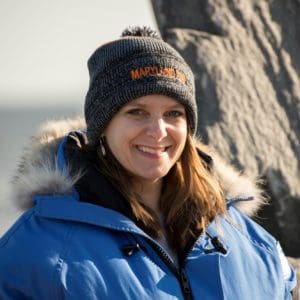Environmental Studies PhD Student Directory
Get to know our current PhD in Environmental Studies candidates.
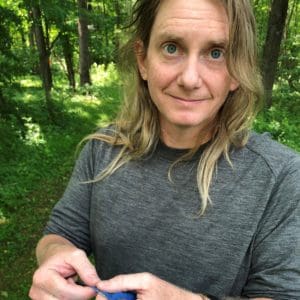
David Mitchell
Location: Lovettsville, VA | Entry Year: 2021 Dissertation Topic: Equity and Inclusion in Biodiversity Nomenclature
More About David
Research Interests
My research interests are defined in recognizing and responding to the inequities represented by the names and naming of taxa. Who names taxa? Who decides who names? What is the historical context of the naming activity, how do names impact society and the environment, and what should the human and digital futures of names and naming look like? I view this scholarship happening at the intersection of two of the world’s greatest problems – bigotry and climate change.
Education
MSc Tropical Ecology, James Cook University
Publications
Mitchell, D., Bowman, L. & Brockmeier, C. Building a Taxonomic Data Editor: ITIS Taxonomic Workbench 6.0. Biodiversity Information Science and Standards 1, e19965 (2017) Mitchell, David, Arthur Jones, and Jean-Marc Hero. Predation on the Cane Toad (Bufo marinus) by the Black Kite (Milvus migrans). Memoirs of the Queensland Museum 38 (1995): 512

Kathryn Clemens
Location: Columbus, OH | Entry Year: 2021 | LinkedIn
More About Kathryn
Research Interests
community conservation, conservation psychology, social justice in conservation, decolonizing conservation, empathy and fellowship in conservation
Education
BSc Animal Science, MA Conservation Biology
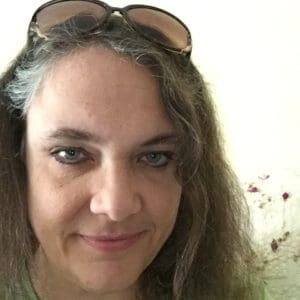
Nadya J. Bennett
Location: Camden, ME | Entry Year: 2020 | LinkedIn Committee chair/advisor: Jason Rhoades
More About Nadya
Education
BS in Human Sciences and Services at University of Rhode Island; MS in Natural Resources at The Ohio State University
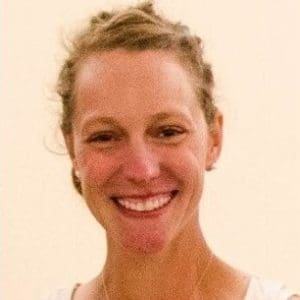
Shanna Demers
Location: Merrimack, New Hampshire | Entry Year: 2020 | LinkedIn Committee chair/advisor: Jean Kayira
More About Shanna
Education
B.S. Biology, Minot State University; M.S. Plant Pathology, North Dakota State University
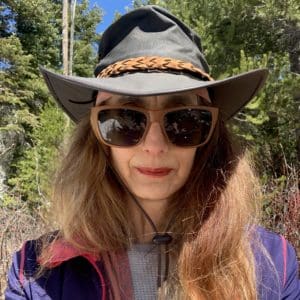
Kimberly Ellis
Location: Tahoe City, CA | Entry Year: 2020 | Website Dissertation Topic: East Africa and Me — A Manuscript When Worlds Merge and Suffering Proliferates Committee chair/advisor: Meaghan Guckian
More About Kimberly
Research Interests
To speak the truth of our history, how the environment got taken advantage for the promotion of economical gain…. The buildup of industrialization & what it did to the land & people, all those taken advantage of to produce products not for the greater good but for the privileged few, the haves but not the have nots. The emphasis on making money to the abuse & detriment of others. The racism it engendered. The unhealthy promotion of things over people & morality & kindness. My PSAs hopefully will begin with vignettes of America’s & our world’s history true history–unmodified & then PSAs about environmental issues that every individual is confronted with & how to manage them more responsibly.
Education
Masters in ES & Humanities, Bachelor’s & I went to many schools
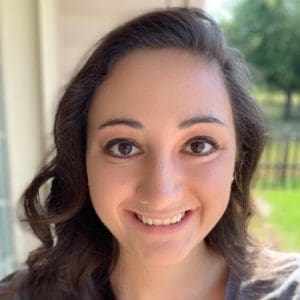
Alyssa Johnson
Location: Pooler, GA | Entry Year: 2020 | LinkedIn Dissertation Topic: Military resiliency to climate change Committee chair/advisor: Meaghan Guckian
More About Alyssa
Research Interests
I am interested in sustainability and resiliency concepts, and exploring the relationship between governments and climate change issues. This includes researching how military installations are reacting to local environmental changes and global climate shifts.
Education
B.S.- Longwood University; M.S.- Christopher Newport University
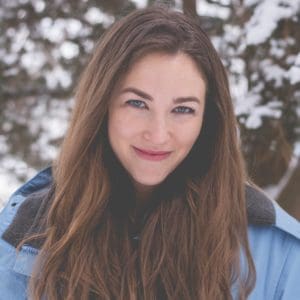
Nichole Kain
Location: Longmont, Colorado | Entry Year: 2020 | LinkedIn Dissertation Topic: Climate migration, older adults, and housing policy Committee chair/advisor: Jason Rhoades
More About Nichole
Biography
Nichole’s dissertation research is focused on the needs of older adults in climate haven cities, with particular interest in rural communities and housing policy.
Research Interests
Nichole is interested in focusing her dissertation research on the lived experiences of older adults to influence policy and design of climate-induced migration receiving communities in North America. Her work is grounded in qualitative methodologies and is guided by the power of place and the importance of personal stories. Her professional and educational experiences include occupational therapy, environmental gerontology, community planning, residential universal design, and home modifications for aging-in-place. Besides her research, Nichole loves teaching and is passionate about creating bridges between theory and practice. She produces and hosts a podcast cultivating cross-discipline conversations about aging and the importance of place and guest lectures at universities across the country.
Education
Graduate Certificate in Community Planning, Northern Arizona University, 2019 | MA in Gerontology, San Francisco State University, 2010 | BSc in Occupational Therapy, Florida Gulf Coast University, 2005
Publications
Benford, R., Barr, S., Kain, N., & Ratajcyzk, E. (2019). Colorado Lifelong Homes: A review of barriers and solutions for aging in place [White paper]. Colorado State University. https://ibe.colostate.edu/wp-content/uploads/sites/5/2019/04/LifeLongHomeWhitepaper_2019_FINAL_corrected.pdf Kain, N., Donovan, C. J., Yee-Melichar, D. (2012). Naturally Occurring Retirement Communities. In Yee-Melichar, D., Flores, C. M., & Cabigao, E. P. (Eds.). Long-Term Care Administration and Management (pp. 53-67). Springer Publishing Company.
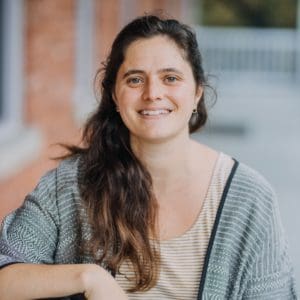
Virginie Mineault
Location: Sainte-Adèle, Québec, Canada | Entry Year: 2020 Dissertation Topic: Values of sustainability for education purpose Committee chair/advisor: Jean Keyira
More About Virginie
Biography
I’m a new Waldorf teacher and nature program educator in my third year of teaching. I traveled in the last years to do different pieces of training (Germany for a year and California for two years) and I’m now settling back in Quebec and diving into environmental education as my research topic. I’m interested in looking at the roots of the values of sustainability and how they do act as a foundation for our relationship with the natural world as we grow up incorporating spiritual ecology, storytelling, indigenous theory, and more to come. I aim to develop programs for the youngs, but also to set the table for discussions with future educators.
Education
BA in translation and international studies (Université Laval), MA in Waldorf pedagogy (Free Hochschule Stuttgart)

Andrea Lynn
Location: Seattle, WA | Entry Year: 2020 | Website Committee chair/advisor: Alesia Maltz
More About Andrea
Research Interests
I am interested in acoustic archives as non-invasive interpretive tools to limit seismic survey activity threatening the Arctic Circle’s delicate ecosystem and the species that depend on the fragile soundscape, specifically focused on the narwhal for its significant sound sensitivities and dependencies.
Education
BA Communication, Truman State University; MFA Writing and Consciousness, California Institute of Integral Studies
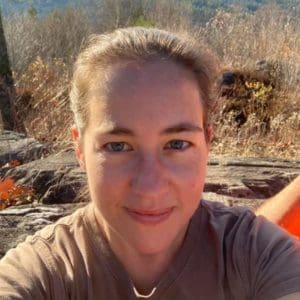
Rachel Brice
Location: Keene, NH | Entry Year: 2019 | LinkedIn Committee chair/advisor: Libby McCann
More About Rachel
Research Interests
I am interested in organizational resilience, particularly as it applies to organizations who work to advance food sovereignty (the right of peoples to healthy and culturally appropriate foods produced through environmentally sustainable means, and the right to define their own food systems).
Education
MS Environmental Studies, Antioch University New England; BA English Literature, Goshen College
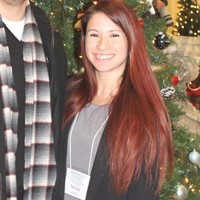
Nicole Conklin
Location: Passaic, NJ | Entry Year: 2019 | LinkedIn Dissertation Topic: Empathy building for animals through zoo and aquarium education and programming Committee chair/advisor: Meaghan Guckian
More About Nicole
Bio
In addition to working as an Animal Keeper at Liberty Science Center in New Jersey, Nicole also works within the Conservation Psychology Institute (CPI) at Antioch University New England. As a Doctoral Fellow, Nicole helps with a variety of projects within the CPI, including a co-design project with Franklin Park Zoo and surrounding Boston communities.
Research Interests
empathy in zoos and aquariums; co-design with communities; program evaluation
Education
B.A in Psychology (Monmouth University); M.A in General Psychology (Montclair State University); M.S in Interdisciplinary Environmental Studies (Antioch University New England)
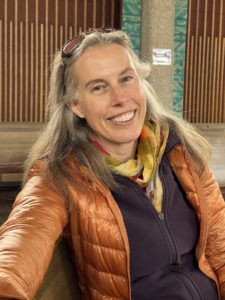
Jennifer Keller
Location: South Hampton, New York | Entry Year: 2019 Dissertation Topic: Forest Bathing Impacts on Adolescents’ Well-Being and Nature Connection: A Transformative Mixed Methods Study on Adolescent Experiences of Forest Bathing Committee Chair: Jean Kayira
More About Jennifer
Research Interests
Jennifer is interested in the intersection between experience, relationship, and learning. She is particularly interested in how place-based education (PBE) can be more relational and contemplative, and how practicing forest bathing might facilitate a more contemplative PBE. Her dissertation research has three goals. First is determining the effects of practicing forest bathing on adolescent mental well-being and connection to nature. Second is documenting adolescents’ lived experiences of practicing forest bathing. Third is determining if forest bathing should be included in social-emotional learning and PBE programs. Jennifer is also interested in expanding the scope of PBE to include secondary school students, particularly as a way to engage teenagers through youth participatory action research (YPAR) in transforming their communities around critical issues. Jennifer is curious about promising practices to support courageous teaching to expand teacher and student agency around the intersection of social and environmental issues.
Education
- MS – Interdisciplinary Environmental Studies, Antioch University
- MAT – Teaching Earth Science – Stony Brook University
- BS – Marine Science (Biology) – Long Island University, Southampton
Publications
Lupia, R., Herendeen, P. S., & Keller, J. A. (2002). A new fossil flower and associated coprolites: evidence for angiosperm‐insect interactions in the santonian (late cretaceous) of Georgia, U.S.A. International Journal of Plant Sciences, 163(4), 675–686. https://doi.org/10.1086/340737 Keller, J. A., Herendeen, P. S., & Crane, P. R. (1996). Fossil flowers and fruits of the actinidiaceae from the Campanian (Late Cretaceous) of Georgia. American Journal of Botany, 83(4), 528–541. Keller, J.A., Herendeen, P.S. and Crane, P.R. (1995) Coprolites Containing Angiosperm Pollen from the Late Cretaceous. Mid-continental Paleobotanical Association
Related Links
Bio
Jennifer is a high school science environmental and earth science teacher with over 15 years of experience and a demonstrated history of engaging students, teachers, and community members in sustainability initiatives. She has expertise in developing engaging, creative, culturally relevant, place-based curricula. As an interdisciplinary scholar, Jennifer is particularly interested in the intersection between traditional ecological knowledge, local knowledge, and western science as ways of relating to, understanding, and communicating with the natural world. Jennifer has also served her district as High School Science Chair, as a member of the Equity Task Force, and as part of the Science Design Team that rewrote the district’s science curriculum to align with new standards. In addition, Jennifer has coordinated and led multiple local, regional, and international field trips, including participating with her students in the Day in the Life of the Peconic Estuary Program annually since its inception in 2011. She also coordinates school biodiversity, geology, and sustainability trips to Costa Rica and Iceland. In 2017 Jennifer was recognized as a New York State Master Teacher, an honor that “celebrates the work of the highest-performing STEM teachers by establishing an expert community dedicated to developing expertise in the areas of content, pedagogy, and student’s families and communities.” She recently completed the fourth year of her Master Teacher term. Jenifer is also a forest therapy guide and mindfulness instructor and shares these practices with her students, colleagues, and community members as part of her commitment to facilitating healing connections with nature, each other, and ourselves.
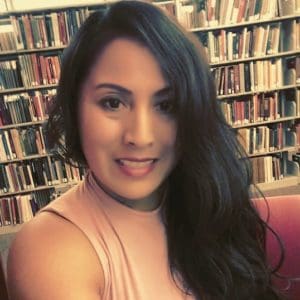
Jennifer Smith
Location: Grand Falls, AZ (Navajo Nation) | Entry Year: 2019 Dissertation Topic: Integrating respective ancestral plant knowledge through Environmental Education parallel to Navajo Education and philosophy approaching synergistic Indigenous adolescent behaviors Committee chair/advisor: Alesia Maltz
More About Jennifer
Education
M.A. Global Sustainability, University of South Florida

Jennifer Phillipp
Location: Sumner, Washington | Entry Year: 2018 | LinkedIn Dissertation Topic: Climate Change and Environmental Justice at Superfund Sites in Rural Settings Committee chair/advisor: Jim Jordan
More About Jennifer
Education
University of California, Davis – Geology MS & DePauw University – Geology and English, BA
Work Experience
Currently providing oversight and expertise to a variety of projects in USACE Seattle District as a Physical Scientist in Environmental Engineering And Remediation Technical Services. Experienced Instructor with a demonstrated history of working in the higher education industry. Skilled in Site Investigation, Brownfield, Environmental Services, Environmental Science, and Groundwater Remediation.
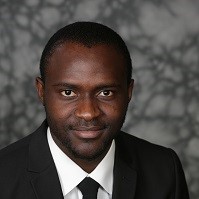
Jacques Kenfack Kenjio
Location: Waldorf, MD | Entry Year: 2018 | LinkedIn Dissertation Topic: Land Reform in sub-Saharan Africa: Exploring Stakeholders Perspectives on Cameroon’s Land Tenure and Land Law Reform Committee chair/advisor: Jason Rhoades
More About Jacques
Bio
Jacques Kenjio is a Ph.D. candidate in environmental studies at Antioch University New England (AUNE) with a focus on two key areas: Government-Driven land dispossession and land reform in Sub-Saharan Africa at large, and specifically in his country of birth, Cameroon. His other research interests include: environmental justice, and policy (especially climate policy), multi-stakeholder participatory processes, social justice and community building. Jacques is currently working on a memoir entitled: Driven by a Sense of Purpose and Duty: The story of a Bamileke man from Cameroon who used his traumatic childhood experiences to make a difference in his life and that of his community. Jacques’ most recent publications featured in a do-it-yourself manual –a book— on how to build strong and sustainable communities. Jacques has lectured graduate and undergraduate students in Cameroon and the USA. He is a member of a Non-profit organization called Association pour la Motivation et Insertion Sociale (AMIS) created by a group of first-generation immigrant Cameroonians in the United States with the mission of empowering the Cameroonian youth to become entrepreneurs and honorable leaders. Jacques is the regional coordinator for the French-African Chapters of Citizens Climate International (CCI) and has done advocacy work for over six years. Jacques spends his spare time, reading, listening to music, hiking, volunteering, and watching soccer.
Research Interests
Jacques doctoral research focuses on the role and importance of multi-stakeholder participation in land tenure and law in Africa. Specifically, Jacques’ dissertation study will adopt a convergent mixed-methodology to explore the insights of key stakeholders in Cameroon around ongoing land law reform proceedings and how a participatory framework can prevent (and/or account for) future government-driven land dispossession to local communities land rights (especially customary land rights). Jacques’ study will seek to center the perspectives of historically disenfranchised and marginalized groups such as local communities, civil society organizations, and traditional authorities around land legislation in Cameroon. This study will provide an understanding of the barriers to (as well as the opportunities for overcoming) developing and implementing an adequate land legislation through a participatory process in Cameroon.
Education
Bachelors of Science in Geography ( University of Buea), Master’s of Sciences in Environmental Management (University of Maryland University College), Master’s of Sciences in Interdisciplinary Studies (Antioch University New England)
Publications
Kenjio, J. W. K. (2020). Decolonizing land tenure systems in Sub-Saharan Africa: The path to modern land policy reforms. Journal of Land Management and Appraisal, 7(1), 1-9. Kenjio, J. (2020) Reclaiming Neighborhoods, Resources, and Lives in Baltimore, Maryland, USA. Building Communities: Twelves Principles for a Healthy Future. New Society Publisher. Kenjio, J. and Salas, S. (2020). Vital Communities of the Upper Valley Region, Vermont and New Hampshire, USA. Building Communities: Twelves Principles for a Healthy Future. New Society Publisher Ambord, P., Kenjio, J. and Salas, S. (2020) Urban Renewal, Vacant and Abandoned Properties, South Bend, Indiana. Building Communities: Twelves Principles for a Healthy Future
Hobbies & Interests
Football (Soccer), Music, Hiking, Social Justice, Equity

Joe Walewski
Location: Finland, MN | Entry Year: 2018 Dissertation Topic: Wild Pedagogies in Everyday Learning Committee chair/advisor: Libby McCann
More About Joe
Bio
Joe has been a Naturalist on the North Shore of Lake Superior since 1988. His interest in lichens has resulted in the publication of Lichens of the North Woods as well as a deep interest in symbiosis. Having mentored over 500 graduate students, he continually insists that symbiosis is the key to good teaching and living. Joe’s pedagogy is founded on the practice of co-teaching with the natural world.
Research Interests
I am interested in the intersection of teaching and learning, especially where nature and natural history are concerned. How does our pedagogy impact the natural world? How does the natural world impact our pedagogy? What role does this all have on the training of our future teachers at all levels?
Education
BS Fish and Wildlife Bio from Iowa State University & MEd Env Ed from UMN-Duluth
Publications
Naturalist at Wolf Ridge since 1988
Hobbies & Interests
Lichens, of course!!!
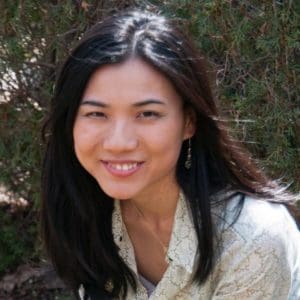
Clara Fang
Location: Detroit, MI | Entry Year: 2017 | Website Dissertation Topic: Building an Inclusive Climate Movement: Challenges and Strategies for Racial Equity Committee chair/advisor: Abigail Abrash Walton
More About Clara
Biography
Clara Fang is pursuing her PhD in environmental studies at Antioch University New England where her dissertation is on racial diversity in the climate movement. In addition, she works as Student Engagement Director for Citizens’ Climate Lobby, a nonprofit organization that works on bipartisan policy solutions to climate change. She also serves on the Board of the Association of Environmental Studies and Sciences and has been a guest editor for the Journal of Environmental Studies and Sciences. Clara has twenty years of experience working in the field of sustainability and environmental advocacy. She holds a Master of Environmental Management from Yale University, an MFA in Creative Writing from University of Utah, and a BA in English from Smith College. She lives in Detroit, Michigan with her partner and three pets.
Education
Master of Environmental Management, Yale University; Master of Fine Arts in Creative Writing, University of Utah; BA in English Language and Literature, Cum Laude, Smith College
Publications
Fang, Clara. “The case for environmental advocacy.” The Journal of Environmental Studies and Sciences. June 2021 https://doi.org/10.1007/s13412-020-00650-5 https://rdcu.be/cdbXC Fang, Clara. “Carbon Pricing: Correcting Climate Change’s Market Failure.” Sustainability: The Journal of Record 11.4 (2018): 162-166. Greenberg, Daniel, and Clara Fang. “The myth of climate neutrality: carbon onsetting as an alternative to carbon offsetting.” Sustainability: The Journal of Record 8.2 (2015): 70-75. Fang, Clara. “Literature as a Means to Understanding Nature.” Sustainability: The Journal of Record 7.4 (2014): 180-183.
Work Experience
Citizens Climate International fellow. Switzer fellow. Association of Environmental Studies and Sciences Board Member. Past: Citizens’ Climate Lobby Student Engagement Director. Association of Environmental Studies and Sciences journal guest editor.
Hobbies and Interests
Poetry, art, psychology, earth-based spirituality, social justice, politics
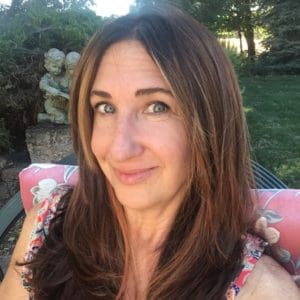
Mary Jo Austin
Location: Eagle Point, Oregon | Entry Year: 2016 | LinkedIn Dissertation Topic: The relationship between traditional practices, attitudes towards wildlife and ape proximity to rural communities in eastern Democratic Republic of Congo Committee chair/advisor: Beth Kaplin
More About Mary Jo
Research Interests
My research interests are exploring the ways rural communities value wildlife through traditional practices, attitudes and resource use to better understand factors that may contribute to or undermine African ape conservation.
Education
MSc, Environmental Studies, Antioch University New England, MSc Resource Management, Central Washington University
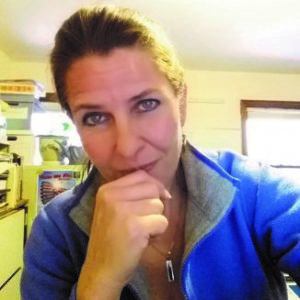
Chrystal Dunker
Location: Spokane, WA | Entry Year: 2016 | LinkedIn Dissertation Topic: At-Risk Adolescents’ Experiences and Values of Nature in a Permanent Children’s Home Setting: A Human-Nature Interaction Pattern Analysis of Coping and Resilience Committee chair/advisor: Jean Kayira
More About Chrystal
Research Interests
In an effort to understand the adolescent perspective of what they need from a relationship with the natural environment and what types of nature could provide benefits for psychological well-being, my dissertation research focuses on the topic of coping and resilience with adolescents from trauma-informed backgrounds through an examination of their nature interactions. Specifically, I am applying a human-nature interaction pattern analysis approach with at-risk youth who are involved in outdoor nature-based projects and recreational activities. This particular approach seeks participant perspectives about their nature interactions in a variety of natural environments and how those interactions may support their coping styles and resilience capabilities. My research draws from the field of ecopsychology and applies interaction pattern theory to contribute to the human-nature interaction pattern and nature language literature through an exploration of their relevance in an un-examined population.
Education
M.S. – Interdisciplinary Environmental Studies, Antioch University New England, 2019; Certificate in Ecopsychology – Lewis & Clark College, Graduate School of Education and Counseling, 2019; M.S. – Wildlife Resources Education & Public Information, University of Idaho, 1995; B.S. – Wildlife Resources, University of Idaho, 1994; A.A.S. – Hotel & Resort Management, University of Minnesota at Crookston, 1989
Work Experience
Prior returning to graduate school, I was the Executive Director of the Prairie Ecology Bus Center (PEBC) for 18 years. The PEBC is a unique, non-profit, regional outdoor environmental education program designed to take people into their own local areas to learn about and develop an awareness of and appreciation for the nature in their own “backyards.” It was my privilege to share diverse outdoor environments in an educational context with learners of all ages throughout southern and western Minnesota. Having witnessed countless times the remarkable, positive well-being effects interactions with nature can have with young people through these programs, I found my calling for my doctoral studies. To this end, I have dedicated my academic focus to understanding how young people value and appreciate their nature experiences, how those experiences align with landscape affordances, and how those nature interactions support psychological well-being.
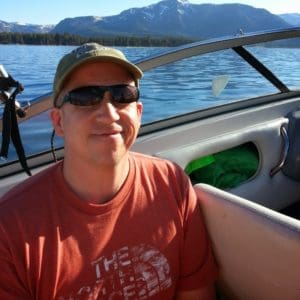
Mark Lawler
Location: Saranac Lake, NY | Entry Year: 2016 | LinkedIn Dissertation Topic: Caribou Persistence Through the Pleistocene/Holocene Transition in Eastern North America, Implications for Extinction and the Current Biodiversity Crisis Committee chair/advisor: Jim Jordan
More About Mark
Biography
Mark Lawler has 18 years of experience merging fieldwork with teaching to make science relevant to the non-science major and developing learners who can think critically, problem-solve, and recognize the differences between scientific and non-scientific arguments. Mark’s research focuses on the late Quaternary megafaunal extinction and the ecological changes that occurred during the Pleistocene/Holocene Transition (PHT) in North America, and how studying extinction losers and winners can provide insights for taxa facing a warming and changing planet. Mark has published and presented on teaching science in the online classroom, distance learning pedagogy, and best practices, paleohistory, paleontology, natural history.
Research Interests
My research centers on the persistence of caribou (Rangifer tarandus) through the Pleistocene?Holocene Transition (PHT) in eastern North America. During the PHT, 37 genera of megaherbivores went extinct, caribou were not among them. What was unique about caribou that allowed them to make it through the extinction bottleneck to become the Holarctically distributed megafauna that it is today? By analyzing the geochemistry of caribou fossil remains from the PHT, life history traits, as well as constructing correlative and mechanistic species distribution models, I hope to shed light on why caribou survived the late Pleistocene extinction and provide insights that may help caribou survive into the future in the face of anthropogenically forced global ecological change.
Education
BA Anthropology Oneonta State; MS Quaternary Studies; Northern Arizona University
Publications
Peer Reviewed Research Lawler, M. C. (2020). Caribou Survived the Late Pleistocene Extinction, but Can They Avoid Extinction in the Twenty-First Century? [Web log post]. Retrieved October 7, 2020, from https://theearlypages.blogspot.com/2020/10/caribou-survived-late-pleistocene.html Lawler, M. C. (1995). Postcranial Morphology and Systematics of Bighorn Sheep (Ovis canadensis) from the Late Pleistocene of Wyoming. Paludicola, 1(1), 5-14. Mead, J. I., & Lawler, M. C. (1994). Skull, Mandible and Metapodials of the Extinct Harrington’s Mountain Goat (Oreamnos haringtoni). Journal of Vertebrate Paleontology, 14(4), 562-576. Lawler, M. C. (1994). Review of Interdisciplinary Studies of the Hajny Mammoth Site, Dewey County, Oklahoma, by Don G. Wyckoff, Brian J. Carter, Peggy Flynn, Larry D. Martin, Branley A. Bronson and James L. Theler. Plains Anthropologist, 39(147), 88-90. Lawler, M. C. (1993). Faunal Analysis of the Mud Wallow Site in The Mud Wallow Site: An Archaeological Discovery at an Indian Health Services Water Line Project, Red Lake, Arizona (92-145). Window Rock, Arizona: Navajo Nation Archaeology Department. Articles and Publications Lawler, M. C. (2016). Ten Strategies for Helping Struggling Students Be Successful in the Online Environment. In Process Education Conference 2016. Academy of Process Educators. Owen, B., Kline, C., Lawler, M., Gilbert, D., Kjellander, D., Musil, E., ……Owalabi, Y. (2015). Modern Instructor: Keys to Exceptional Online Teaching. Gainesville, FL: Modern Instructor Publishing Babb, D., Ross, T., Kline, C., Gilbert, D., Hansen, K., Lawler, M., . . . Sprinkle, H. (2014). Modern instructor: Success strategies for the online professor. Fullerton, CA: Kidya Publishing Lawler, M. C. (2013, December 1). Returning to nature. Grownups, 1(1), 14-16. Retrieved from http://grownupsmag.com/returning-to-nature/ Lawler, M. C. (2013). Review of The Cambrian Explosion – The Construction of Animal Biodiversity by Douglas H. Erwin and James W. Valentine. Evolution – This View of Life, Retrieved from http://www.thisviewoflife.com/index.php/magazine/book_review/review-the-cambrian-explosion Lawler, M.C. (2013). Bones I Have Known – Getting Students Excited About Paleontology. Evolution -This View of Life, Retrieved from https://evolution-institute.org/bones-i-have-known-getting-students-excited-about-paleontology/ Lawler, M. C. (2010, October). Faculty Spotlight. Globe University/Minnesota School of Business Course Schedule Guide [Richfield], p. 66. Lawler, M. C. (2008). Review of Geology Program, West Hills College. Coalinga, California: West Hills Community College District Barton, B. R., Lawler, M. C., & Boyd, D. (1991). A Preliminary Report on the Vertebrate Fauna from the North Point Site Cedar Breaks National Monument, Utah (GLG 698). Flagstaff, Arizona: Northern Arizona University
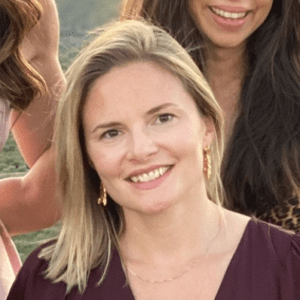
Lindsay Ratcliffe
Location: San Antonio | Entry Year: 2016 | LinkedIn Dissertation Topic: Deliberating Climate Equity: A Rhetorical Examination of Climate Adaptation Planning in San Antonio, Texas Committee chair/advisor: Jimmy Karlan
More About Lindsay
Research Interests
The aim of my dissertation project is to understand how policymaking discourse has constructed climate adaptation in San Antonio, Texas. This project, a critical case study of San Antonio’s first Climate Action and Adaptation Plan, uses critical discourse analysis and rhetorical analysis as tools to uncover how arguments for climate action in San Antonio wrestled for prominence during the plan’s development. These arguments (e.g., the “equity case,” “the business case,” and others) draw on differing political values with differing implications for climate adaptation in this city. Through this project, I am to show how the arguments we make to justify our policy choices have high-stakes material consequences—particularly for the frontline communities bearing the brunt of climate impacts today.
Education
MS in Environmental Studies (2019), Antioch University New England; MA in English (2005), University of Texas at San Antonio; BA in English (1999), Grove City College (PA)
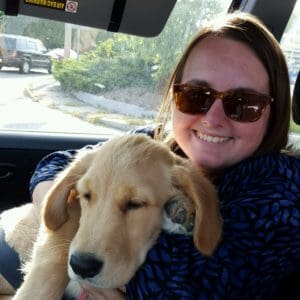
Lisa Heller Boragine (she/her)
Location: Raynham, MA | Entry Year: 2015 | Website Dissertation Topic: Experiences with Online Game Based Learning in Higher Education Classrooms Committee chair/advisor: Jason Rhoades
More About Lisa
Biography
Lisa Heller Boragine has 25 years of experience teaching a wide variety of communication courses (online, face to face, remote) in public speaking, argumentation and debate, persuasive communication, and environmental communication. She has experience coaching academic intercollegiate debate and is familiar with a variety of debate formats and debate activities. Lisa Boragine is fluent in Spanish and English and has served as a trainer and invited judge at Spanish language academic debate institute in Colombia in 2014. Her research interests are related to game-based learning and systems thinking.
Research Interests
My dissertation research will consider how the use of game-based learning in the higher education classroom might influence the connections between perceived personal and community responsibility, systems thinking and concern about climate change that takes place as students participate in the online multiplayer game New Shores: a game for Democracy.
Work Experience
Lisa is currently a tenured full-time Communication studies faculty at Cape Cod Community College, also serves as adjunct faculty at Stonehill College and Bridgewater State College
Hobbies and Other Interests
Science fiction (especially Doctor Who), music, and writing

Tammy Cloutier
Location: Maine | Entry Year: 2015 Dissertation Topic: Anthropogenic effects and influences on African painted dogs (Lycaon pictus) Committee chair/advisor: Lisabeth Willey
More About Tammy
Research Interests
human-wildlife interactions, intersection of art and science, science communication.
Education
MWS, Wildlife Science, Texas A&M University; BS, Psychobiology, University of New England
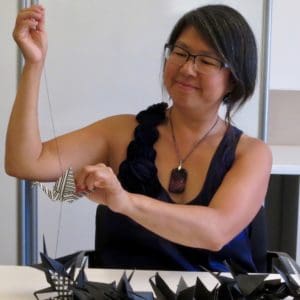
JuPong Lin
Location: Amherst, MA | Entry Year: 2019 | Website Dissertation Topic: intersectional ecojustice, culturally-rooted contemplative art, decolonial aesthetics Committee chair/advisor: Gopal Krishnamurthy
More About JuPong
Biography
JuPong Lin is a Taiwan-born interdisciplinary artist-researcher, writer and educator who creates spaces to expand our capacity to metabolize or recover from trauma. Viewing climate change as a form of collective trauma, JuPong’s work explores how culturally-rooted contemplative practices can bridge personal healing with organizing for collective action in resistance to climate injustice. Her installations and community performances blend paper-folding, poetics, story circle and qigong. As a de/colonizing artist and ceremonial activist, JuPong is dedicated to reclaiming ancestral traditions and language liberation and offers workshops to cultivate kinship between peoples, land, other-than-human beings and our beloved 地球 (earth).
Research Interests
My dissertation research aims to understand how contemplative ecoart practices, rooted in East Asian ancestral practices and knowledge, can repair and restore our beloved places, to heal from generations of ecocide.
Hobbies and Interests
gardening, herbalism, knitting, paper folding
Work Experience
2020-current Program Chair, MFA in Interdisciplinary Arts Program, Goddard College 2019-current Adjunct Faculty, Arts Extension Service, University of Massachusetts, Amherst 2015-2019 Program Director, MFA in Interdisciplinary Arts Program, Goddard College
Publications
- 2021
- Lin, JuPong, and Devora Neumark. “Instructions for Being Water: A Performance Score.” In Signs of Water: Community Perspectives on Water, Responsibility, and Hope., edited by Rob Boschman and Sonya L. Jakubec. Arts in Action. Calgary, Alberta: University of Calgary Press, 2022.
- Lin, JuPong, “Wild Onions,” “Under Cedar Boughs,” and “When We Can Breathe.” McGloughlin, Lis, editor. Honoring Nature: An Anthology of Authors and Artists Festival Writers. Human Error Publishing, 2021.
- 2020
- Lin, JuPong. “1000 Gifts of Decolonial Love”, Dark Matter, Issue 11, September, 2020
- Lin, JuPong, and Devora Neumark. “Contemplating Climate Justice, Cultivating Resilient Communities.” In Oxford Handbook of Drama, Theatre, Improvisation and Wellbeing, 2020.
- Lin, JuPong, and Devora Neumark. “Scores for Climate Justice.” In Provocations, Pedagogies, and Other Strategies; Teaching Ecological Art, Guidance from the International Ecoart Network
- 2018
- Lin, JuPong, and Devora Neumark. “A Brief Overview of ‘Instructions for Being Water: A Performance Score.’” In Emergency Index, Yelena Gluzman and Matvei Yankelevich, Editors. Brooklyn: Ugly Duckling Press.
- 2016
- Lin, JuPong. “A Yinyang, Ecocritical Fabulation on Doctor Who.” In J. Canty (Ed.) Edges of Transformation: Multicultural Women’s Voices on the Intersections of Ecological and Social Healing, pp. 163-178
- 2014
- Lin, JuPong. “The Media Ecosystem: What Ecology can Teach Us about Responsible Media Practice,” book review in the Journal of Media Literacy Education 6:1, 2014

Anna Mooney
Location: Lake Wylie | Entry Year: 2014 Dissertation Topic: Race Equity in Environmental Education Committee chair/advisor: James Karlan
More About Anna
Research Interests
Race equity trainers’ perceptions on moving Environmental Education toward race equity.

Janine Marr
Location: Gilsum, NH | Entry Year: 2014 Dissertation Topic: White Pine Blister Rust Distribution in New Hampshire 1900:2018 Exploring the Impacts of an Exotic Pathogen on Forest Composition and Succession Committee chair/advisor: Peter Palmiotto
More About Janine
Research Interests
I am interested in the long-term impacts of exotic species in our ecosystems and the inter-relationships between our forests, the exotics, humans, and the changing climate. My research found that the exotic disease, white pine blister rust (WPBR), is successfully adapting to the warmer and wetter NH climate. Where uncontrolled, WPBR acts as a disturbance agent that, together with natural successional processes, affects the sustainability of white pine as a forest component.
Education
MS Environmental Studies AUNE; MA Interdisciplinary–Forest Ecology & Forest Health AUNE; MA Counseling Psychology & Additions: Adolescents from Antioch New England Graduate School
Publications
Abrash Walton, A., Marr, J., Cahillane, M., & Bush, K. F. (2021). How do we build community resilience to disasters in a changing climate? A review of interventions to improve and measure public health outcomes in the Northeastern United States (p. 50). Center for Climate Preparedness and Community Resilience, Antioch University New England.
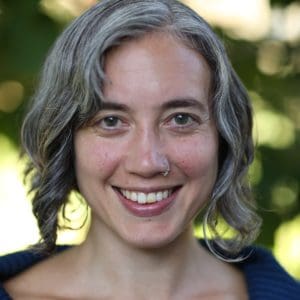
Cherice Bock
Location: Oregon, USA | Entry Year: 2014 | LinkedIn Dissertation Topic: Ecotheology in Context: A Critical Phenomenological Study of Graduates of Environmentally Focused Seminary Programs in the United States of America Committee chair/advisor: Joy Ackerman
More About Cherice
Bio
Cherice Bock lives in Oregon, on the traditional lands of the Kalapuya (now part of the Confederated Tribes of Grand Ronde). She is adjunct professor of ecotheology at Portland Seminary, and she leads Oregon Interfaith Power & Light as the creation justice advocate at Ecumenical Ministries of Oregon. She began teaching in the theology department at University of Portland beginning in the fall of 2020. In the 2018–2019 school year, she served as visiting professor of environmental studies at The Oregon Extension. Bock holds an M.Div. from Princeton Theological Seminary and an M.S. in environmental studies from Antioch University New England, and she is a Ph.D. candidate in environmental studies at Antioch University New England.
Education
BA, Psychology, George Fox University; MDiv, Princeton Theological Seminary; MS, environmental studies, Antioch University New England
Publications
Co-editor with Stephen Potthoff, Quakers, Creation Care, & Sustainability, Friends Association for Higher Education Quakers & the Disciplines series, vol. 6. “Oregon Yearly Meeting and the Peace Testimony, Part II: Relationship with the American Friends Service Committee, 1938–1954,” Quaker Religious Thought 136 (Spring 2021): 35–47. “Quaker Pneumatology,” in T&T Clark Handbook of Pneumatology, Bloomsbury Companions Series, eds. Daniel Castelo and Kenneth M. Loyer (Bloomsbury), 233–240. “Quaker Spirituality,” in Protestant Spiritual Traditions, vol. 2, ed. Frank C. Senn (Wipf & Stock, 2020), 63–102. “Friends and Watershed Discipleship: reconciling with people and the land in light of the Doctrine of Discovery,” Quaker Religious Thought 134 (Spring 2020): 35–46. “Watershed Discipleship,” in An Ecotopian Lexicon, eds. Brent Ryan Bellamy and Matthew Schneider-Mayerson (University of Minnesota Press, October 2019). doi:10.5749/j.ctvthhdbm.36 “Oregon Yearly Meeting and the Peace Testimony, Part I: Navigating Evangelicalism & Quakerism, 1938–1954,” Quaker Religious Thought 133 (September 2019): 22–31. “Watershed Discipleship: communicating climate change within a Christian framework, a case study analysis,” in Handbook of Climate Change Communication, vol. 3: Case Studies in Climate Change Communication, Climate Change Management Series, eds. Walter Leal Filho, Ulisses Azeiteiro, Evangelos Manolas, and Anabela Mariza Azul (Springer, 2018). “Climatologists, Theologians, & Prophets: Toward an Ecotheology of Critical Hope,” Cross Currents 66:1 (March 2016): 8-34. “Scarcity vs. Abundance: Moving Beyond Dualism to ‘Enough,’” Christian Feminism Today, June 2015. “Romans 12:17-13:10 & Quakers’ Relation to the State,” Quaker Religious Thought 116–117 (December 2011): 8–22. “Quakers on the Spectrum of Nonviolence: in conversation with K. Barth, Reinhold Niebuhr, M.L. King, Jr., J.H. Yoder and Robert Barclay,” Quaker Religious Thought 110 (May 2008): 8–17.
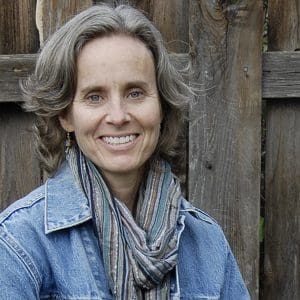
Deb Matlock
Location: Lafayette, CO | Entry Year: 2010 | LinkedIn Dissertation Topic: Inter-species Communications: Personal Stories and Insights for Environmental Education Committee chair/advisor: Jean Kayira
More About Deb
Biography
Deb Matlock grew up in the mountains of Colorado and is deeply committed to nurturing the connection between people, animals, earth, and spirit. She has spent twenty-five years working as a professional environmental and humane educator and naturalist. Deb offers shamanic-style spiritual guidance, animal communication, nature connection workshops, and retreats through her business, Wild Rhythms. She is passionate about helping people find connection and deep spiritual meaning in their lives and in the places where they live. Deb holds a Master of Arts in Environmental Education from Prescott College and is pursuing her doctoral degree in environmental studies at Antioch University New England.
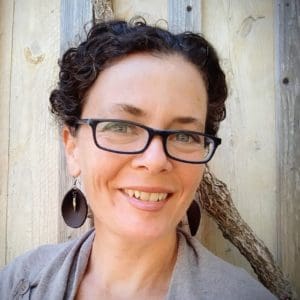
Jess Gerrior
Location: Antrim, NH | Entry Year: 2014 | LinkedIn Dissertation Topic: You Can Eat Change: A Critical Autoethnography of Growing Food, Community, and Identity in University-Community Garden Projects Committee chair/advisor: Libby McCann
More About Jess
Biography
Jess was the C&S Workplace Organic Gardens Doctoral Fellow & Project Director from 2015 to 2019. Jess is a Network Leader with New Hampshire Food Alliance, a Food Access Working Group member and former Board Chair of Monadnock Farm & Community Coalition, and Board Member of The Community Kitchen. Jess’s community and nonprofit roles include coordinating farm-based programs and teaching in school gardens at Cornucopia Project, based in Peterborough, NH, and directing NH Gleans, a statewide network connecting fresh farm produce, volunteers, and local hunger efforts. At home, Jess and her family raise laying hens, vegetables, herbs, berries, and native flowers and run a small garden CSA, Hindsight Gardens.
Research Interests
My dissertation explores community gardening as practice within university-community food system efforts in the Monadnock Region over the last ten years. Using critical autoethnography, I draw data from my lived experience to bridge personal and cultural aspects of this phenomenon, contextualizing it within larger social problems of food access, dignity, and justice. Autoethnographic methodology invites researchers to become a lens into our culture(s). Applied in community gardens, it shows how we plant more than seeds and grow more than food; we cultivate a web of relationship containing opportunities to learn about ourselves, each other, and the systems that shape us. My research skills include evaluation, photovoice, case study, and community-based methods. Areas of interest are farm- and garden-based education, local food systems, campus-community engagement, and food policy.
Education
MS, Environmental Studies – Environmental Education Concentration, AUNE; BS, Biology/Microbiology, University of New Hampshire
Publications
Gerrior, J. (2020). Framing the fight: Food, history, and meaning in the mess. Journal of Agriculture, Food Systems, and Community Development, 10(1), 281–283. https://doi.org/10.5304/jafscd.2020.101.022
Work Experience
Adjunct Faculty: University of Southern Maine, Keene State College, Antioch University New England, Community College System of NH. Sustainability Coordinator & Educator: Franklin Pierce University.
Hobbies and Interests
Founding member of Monadnock Roller Derby and two-time tournament skater with Team Vermont



